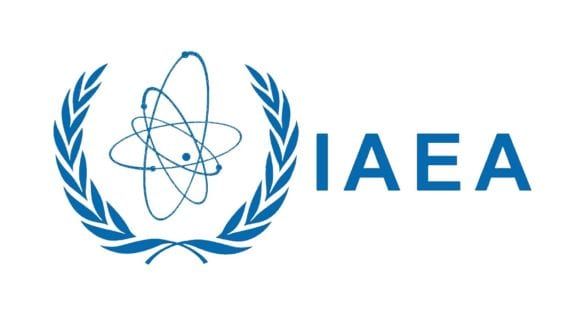RFL/RE – The UN nuclear watchdog said June 25 that it has not received a response from Iran about extending an interim atomic monitoring agreement, after the United States and France warned that not doing so could imperil talks to revive the 2015 nuclear deal.
The temporary monitoring agreement between the International Atomic Energy Agency (IAEA) and Iran expired on June 24, ending an arrangement agreed to in February that gave the international community eyes and ears on Iran’s nuclear program.
IAEA chief Rafael Grossi said in a statement that as of June 25, Iran had not replied or indicated whether it intends to extend the monitoring agreement.
“An immediate response from Iran is needed in this regard,” Grossi said, adding that it was of “vital importance” the agency continue verification and monitoring activities in Iran.
The Iranian representative to the International Atomic Energy Agency, Kazem Gharibabadi, said that Tehran was not required to comply with the IAEA head’s request, Iran’s semiofficial news agency Tasnim reported.
U.S. Secretary of State Antony Blinken told reporters earlier on June 25 that the United States was concerned and this “has been communicated to Iran and needs to be resolved.” Blinken spoke during a news conference in Paris alongside his French counterpart Jean-Yves Le Drian.
Grossi is expected to update the UN body’s Board of Governors on the matter at some point on June 25.
The interim monitoring deal was struck in February for three months, then extended by a month on May 24.
Former U.S. President Donald Trump withdrew his country from Iran’s nuclear deal with six world powers in 2018 and reimposed economic sanctions on Tehran.
Iran responded by gradually breaching restrictions on centrifuges and uranium enrichment set out in the deal, known officially as the Joint Comprehensive Plan of Action (JCPOA).
In response to ongoing sanctions and the assassination of a nuclear scientist last year, Iran announced in February that it was scrapping some of the deal’s inspection and monitoring measures.
While the temporary inspections regime eased some concerns, the reduced compliance has made it more difficult to detect a secret nuclear facility or activities, if there are any.
U.S. President Joe Biden is seeking to revive the JCPOA, but a sixth round of indirect talks in Vienna adjourned on June 20 with key issues still unresolved.
The negotiations have largely stalled over technical details and demands from Iran that all U.S. sanctions be lifted.
“We still have significant differences with Iran,” Blinken said, warning that if too much time passes the JCPOA will remain moribund.
“There will come a point, yes, where it will be very hard to return back to the standards set by the JCPOA,” Blinken said.
“We haven’t reached that point — I can’t put a date on it — but it’s something that we’re conscious of.”
Blinken warned that, if Iran “continues to spin ever more sophisticated centrifuges” and steps up uranium enrichment, it will lessen the “breakout” time needed for Tehran to develop a nuclear bomb.
France — a remaining party to JCPOA alongside Britain, Germany, Russia, and China — also called on Iran to advance the talks.
“We expect the Iranian authorities to take the final decisions — no doubt difficult ones — which will allow the negotiations to be concluded,” Le Drian said at the joint news conference with Blinken.
After the IAEA statement, Russia’s envoy to the nuclear negotiations said he hoped Iran would soon extend the temporary monitoring arrangement.
“It would allow to avoid uncertainties which can have unjustifiable long-lasting negative effects,” Mikhail Ulyanov wrote on Twitter.
Earlier this week, Iran’s outgoing President Hassan Rohani and other top officials signaled progress had been made in negotiations. Rohani’s chief of staff, Mahmud Vaezi, said Tehran will also decide whether to extend its monitoring deal after its expiry on June 24.
 Shabtabnews In this dark night, I have lost my way – Arise from a corner, oh you the star of guidance.
Shabtabnews In this dark night, I have lost my way – Arise from a corner, oh you the star of guidance.



